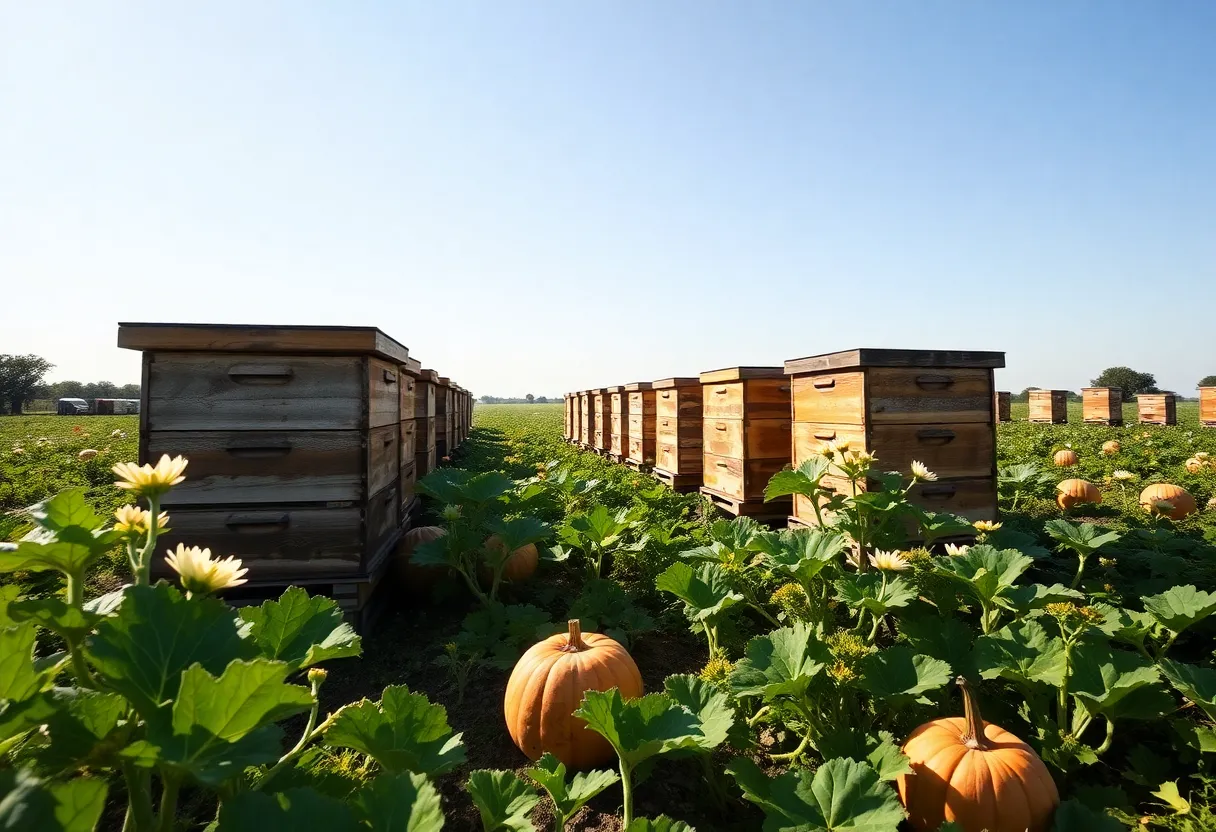News Summary
The Wheeler family, owners of Frio Country Farms, are grappling with alarming losses in their bee colonies, a trend affecting beekeepers nationwide. With increased colony collapses and environmental pressures, they may shift their focus from pollination services to honey production. As the agricultural sector heavily relies on bee populations for crop pollination, experts warn that ongoing losses could threaten food supply and increase prices. The Texas beekeeping industry, despite its recent growth, faces a crucial juncture as it confronts these challenges.
San Antonio’s Beekeeping Community Faces Serious Challenges
The Wheeler family, known for their entrepreneurial spirit, launched Frio Country Farms just southwest of San Antonio in late 2019. Their mission? To produce around 3,000 bee colonies each year, primarily for the crucial job of pollinating crops like watermelons and pumpkins. However, like many others in their field, they are facing some tough times.
The Bee Crisis Deepens
In recent years, beekeepers nationwide have been dealing with an alarming trend: a significant increase in bee colony collapses. Over the past 15 years, these collapses have become more common, leaving the Wheeler family typically losing around half of their bees annually. Unfortunately, last year, those losses escalated. The financial toll has raised serious questions about the future of their business.
A Shift in Strategy
In light of these challenges, Frio Country Farms may pivot away from offering pollination services to focus instead on honey production, which could help sustain their bee health. This decision underscores a significant reality in the beekeeping world: farmers across the nation heavily rely on beekeepers to pollinate over 100 types of fruits and vegetables. Without healthy bee populations, the agricultural landscape could look very different.
National Trends and Local Impacts
A recent survey reveals that Texas commercial beekeepers have reported losing an average of two-thirds of their colonies since June, a staggering statistic when compared to the national average of 62%. Collectively, beekeepers in the U.S. have faced a financial hit of around $635 million because of these devastating colony losses.
The Future of Food Supply
Experts are ringing the alarm bells, warning that such heavy losses cannot continue without dire consequences. The current decline in bee populations poses a threat not just to beekeepers, but to the *entire agricultural* sector. If bees continue to dwindle, the quality and quantity of crops depending on their pollination could significantly decrease, which could lead to rising prices for consumers and production challenges for farmers.
Worrying Trends in Texas
Interestingly, while the beekeeping industry in Texas has *expanded rapidly*, with the number of beekeeping businesses skyrocketing from 1,851 in 2012 to 8,939 in 2022, these recent losses are throwing a wrench into that progress. The state’s favorable climate and supportive legislation—like a 2012 law that provides tax incentives for beekeeping—have contributed to this boom, but the alarming collapse of bee colonies could undermine all of that.
In fact, even major operations in Texas that supply bees for pollination, particularly for California’s almond crops, have been affected by these losses. One beekeeper reported losses surpassing 70% in the past year, calling into question their capacity to meet the ever-growing demands for pollination services.
Comparisons to Past Issues
The current situation is drawing comparisons to the Colony Collapse Disorder (CCD) that plagued beekeepers in the late 2000s, resulting in dramatic declines in bee populations. Various factors contribute to these colony collapses, including parasites like the Varroa mite, pathogens, pesticide exposure, inadequate nutrition, and frail queen bees.
Proposed Solutions and Future Talent
Experts at Texas A&M University are researching ways to breed bees resistant to the Varroa mite, hoping to tackle this pressing problem. With continuous high loss rates, there’s growing concern that *the beekeeping business model* may become unsustainable, potentially impacting food systems at local and national levels.
As the uncertainty looms, worries are growing about whether the industry can attract new talent and whether agricultural ecosystems reliant on bee pollination can remain intact. The future of beekeeping in Texas, and beyond, hangs delicately in the balance, and addressing these challenges urgently is key to ensuring a thriving agricultural future.
Deeper Dive: News & Info About This Topic
- Herald Banner: Surge in Bee Deaths
- KVUE: Bee Deaths and Texas Beekeepers
- KBTX: Man Killed After Being Stung by Bees
- WDBJ7: Man Dies After Being Stung by Bees
- Washington Post: Bees in Crisis
- Wikipedia: Beekeeping
- Google Search: Bee Colony Collapse
- Google Scholar: Bee Population Decline
- Encyclopedia Britannica: Bee
- Google News: Bee Deaths Texas







